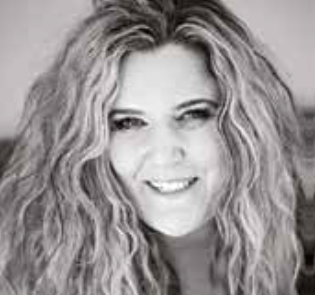 Dr Danielle Arabena is a descendant of the Meriam Mer Clan groups of the Torres Strait Islands but grew up in Brisbane in the bayside suburb of Wynnum. Her Torres Strait Islander heritage is through her father. Danielle is married with two daughters, one of whom is in third-year medicine at the University of Queensland, while the other is exploring different pathways associated with healing. She also has a sister working with the University of Melbourne.
Dr Danielle Arabena is a descendant of the Meriam Mer Clan groups of the Torres Strait Islands but grew up in Brisbane in the bayside suburb of Wynnum. Her Torres Strait Islander heritage is through her father. Danielle is married with two daughters, one of whom is in third-year medicine at the University of Queensland, while the other is exploring different pathways associated with healing. She also has a sister working with the University of Melbourne.
Danielle currently lives in Brisbane where she works part time as a GP at Fernlands Radius Medical Centre. She is also the medical educator on the Indigenous Health Training Team for General Practice Training Queensland (GPTQ), and runs a business based on holistic health and wellness.
Danielle’s journey into medicine followed completing a Bachelor of Communications and a Bachelor of Nursing. Having previously worked as a healer, she felt the need to go deeper and formalise her innate calling. As a first-year medical student and an Australian Indigenous Doctor’s Association (AIDA) member, she travelled to Alice Springs where she met the Ngangkari (traditional healers) who would strongly influence her healing journey through medicine. With the Ngangkari teachings in hand, Danielle completed her medical degree and began as an intern at Redcliffe Hospital. It was through this experience she started actively working with the hospital to improve the health outcomes of Aboriginal and Torres Strait Islander patients, and this led to Danielle’s success in general practice training. She knew in her heart she wanted to advocate for those who did not have a voice. She felt that general practice was the correct vehicle to help patients and their families undertake their health journey and achieve its outcomes.
Danielle believes she is lucky to have two fantastic jobs where she can work in medical education, influencing registrars’ experiences with Aboriginal and Torres Strait Islander patients, and in which she can also realise her calling to practice medicine as a GP.
As a GP, Danielle is particularly fond of the relationships she forms with her patients. An example is her enjoyment of shared antenatal care throughout an entire pregnancy, followed by the first clinic visit after the birth when she meets the new baby for the first time. Danielle appreciates the complete spectrum of general practice – from working with infants in the cradle, to children she sees as patients who jump into her arms, right through to patients in aged care. She has always worked with Aboriginal and Torres Strait Islander patients and has felt honoured when some have followed her from one general practice to another. Danielle works in a mixed billing practice whereby Aboriginal and Torres Strait Islander patients are bulk billed and thorough health checks are provided.
Danielle has just stepped down from the AIDA board after eight years. In that time, she worked on national policies to improve health outcomes for patients. She believes there is a long way to go in ‘closing the gap’, but she is impressed with the innovations that people are undertaking and encourages all doctors to participate in programs that are available to them. Danielle sees that while it is important to have more Aboriginal and Torres Strait Islander doctors, there also needs to be more support to increase the numbers of Aboriginal and Torres Strait Islander health workers. She also believes it important that Aboriginal and Torres Strait Islander education is not only taught in schools but is integrated into every aspect of education.
When not at work, Danielle most enjoys being in her home on the mountain. She has an eclectic taste in music and is learning to play a Djembe drum. A close friend of Danielle’s describes her as someone ‘generous of spirit, who has been on a pathway of healing since birth, and has finally reached a point where she can fulfil her life’s goal of healing’.
First published in: The Royal Australian College of General Practitioners. Closing the gap with the RACGP’s Aboriginal and Torres Strait Islander GPs. East Melbourne, Vic: RACGP, 2016